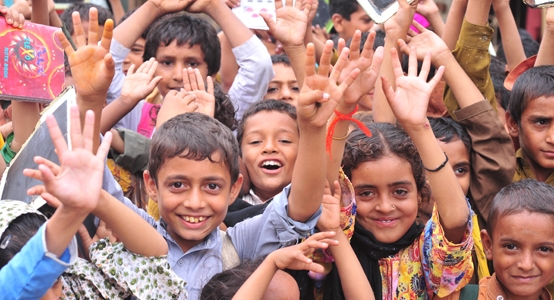Barcelona, Spain, 28 February 2019: “Eye health services are far too often a neglected part of child health interventions at the expense of a student’s potential,” said Hasan Minto, Global Programs Director at Our Children’s Vision and Chair of the IAPB’s working group on school eye health.
“If you know the situation in Africa, if you know the situation in most developing countries, none of the countries have enough health care workers who could do this screening. If you look at the overall need — the 700 million children who need vision screening — and you look at the scarcity of eye care or other health care, I don’t think there’s any other way to actually provide this service,” said Hasan Minto.
Teachers are on the frontlines of education, battling with books and blackboards to ensure inclusive and equitable quality education for all, while simultaneously touching other critical Sustainable Development Goals. But some NGOs think teachers can have an even bigger role — as frontline detectors of poor health, particularly poor eye health.
Eighty percent of what a child learns is processed through their visual system. When it comes to vision impairment in children aged 5-15, an estimated 12.8 million cases are due to uncorrected or inadequately corrected refractive errors, which can be easily rectified with glasses.
This is an excerpt from the story: The unexpected frontline detectors of poor vision. By Rebecca Root // 27 February 2019 By DEVEX.
Our Children’s Vision Facebook: https://www.facebook.com/ourchildrensvision/
Our Children’s Vision Twitter Feed: https://twitter.com/OurChildrensVsn
Facebook: https://www.facebook.com/groups/BrienHoldenPH/
Twitter: https://twitter.com/brienholden
Linkedin: https://www.linkedin.com/company/bhvi/


